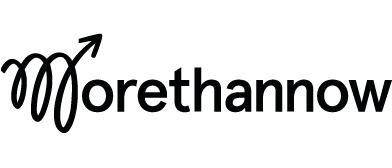The IF/THEN Plan.
Whether it's healthy eating or regular exercise, we can all struggle to stick to our goals. Behavioural science is here to help and the IF/THEN Plan is one of its most accessible tools.
It's a simple way to help you 'implement your goal intentions’, developed by Professor Peter Gollwitzer at New York University. This article was inspired by a lecture he gave at the London School of Economics in March 2018.
What's an IF/THEN Plan?
Let’s use healthy eating as an example. First, an IF/THEN Plan would ask you to specify the context(s) where you struggle to ‘implement that intention'. Then it asks you to make a plan to see it through and say it out loud or write it down. Like this:
IF I am in the Supermarket cereal aisle, THEN I will check the packets for nutritional value and make the healthy choice.
IF I am at a restaurant, THEN I will ask the waiter whether they have any low-calorie options on the menu.
IF I feel hungry when I am watching TV, THEN I will choose a snack from the ‘healthy’ section of my kitchen cupboard.
The way this technique works is odd. When I first heard about it, I thought the IF context — the cereal aisle, the restaurant, or watching TV — would remind me of my plan and jolt me into conscious action. But that isn't right. In fact, the exercise hard-wires the behaviour at an unconscious level. Gollwitzer calls it ‘strategic automaticity’ and it works by coding a mental association between the cue and the response that operates without intent.
What on earth does that mean? That it creates a habit without practice or repetition - and when I heard that, I was pretty sceptical.
Because it sounds too good to be true.
When I told my colleagues about this the day after the lecture, they were incredulous (especially John, who insisted on printing out a 50 pg meta-analysis on the subject for bedtime reading — he looked very tired the next day).
But here’s the thing: An IF/THEN Plan doesn’t guarantee you’re going to achieve your goals but then neither will anything else. Behavioural science is all about increasing your chances, and seen through that lens, this simple technique does seem to trump more resource-intensive change initiatives. It's been a subject of psychological study for 25 years and over that time, it has been explored empirically across a range of behaviours:
The IF/THEN Plan has helped people achieve all sorts of goals, including ones that are either habitual or automated. It has helped people deal with a fear of spiders (IF I see a spider, THEN I will keep calm). It has helped people score higher on IQ tests by completing them more efficiently (IF I complete a question, THEN I will move immediately to the next). It has even helped groups of business leaders make commercially advantageous decisions by overcoming confirmation bias. Again, this might seem strange, but let’s look to the evidence:
In 2006, Peter Gollwitzer and a fellow researcher, Paschal Sheeran analysed 94 independent studies like the above, involving over 8000 participants and found a medium-to-large effect size of the IF/THEN Plan on goal attainment. You can find it here:
What does this mean for organisations?
Let me offer an example. The lecture Peter Gollwitzer gave at LSE was the same week as International Women's Day, and as part of the #PressForProgress campaign, thousands of people shared public pledges of what they would do to support Gender Equality. The problem - as with many of these initiatives - was that the pledges were far too broad to be effective. The IF/THEN plan could have helped people focus on more precise goals AND increased the likelihood they would actually follow through to action. It’s a simple conclusion that could extend to all manner of workplace challenges and ambitions. And if you’re thinking ‘that’s a nice little idea’, think again. The effect size of the IF/Then Plan is larger than many traditional change initiatives, so it could save your company £millions while increasing the effectiveness of your work.


